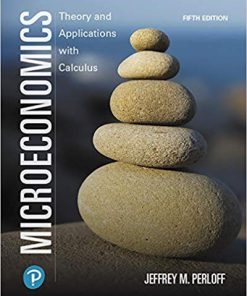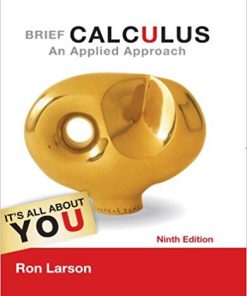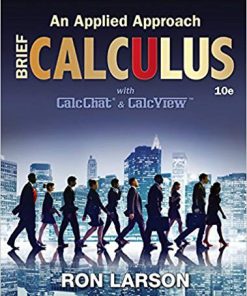Microeconomics: An Intuitive Approach with Calculus 2nd Edition Thomas Nechyba – eBook PDF
$50.00 Original price was: $50.00.$35.00Current price is: $35.00.
Microeconomics: An Intuitive Approach with Calculus – Ebook PDF
Microeconomics: An Intuitive Approach with Calculus – Ebook PDF Instant Delivery – ISBN(s): 9781305650466,1305650468

Product details:
- ISBN-10 : 1305650468
- ISBN-13 : 978-1305650466
- Author: Thomas Nechyba
Should you rent a car or take taxis while on vacation? How do coupons change demand? Should we subsidize oil drilling to make us less dependent on foreign oil? MICROECONOMICS: AN INTUITIVE APPROACH WITH CALCULUS, 2E explains the economic theory underlying day-to-day choices. The A sections of each chapter introduce concepts using intuition, conversational writing, everyday examples, and graphs. The B sections cover the same concepts with accessible mathematical analyses that assume you have one semester of single-variable calculus. MindTap is now available with interactive, animated Video Graph Presentations that bring each graph from the book to life. Improved navigation and chapter markers let you use this resource with ease. New Progression Graphs in the eReader separate economic concept graphs into finite steps that you can walk through at your own pace.
Table of contents:
1. Introduction.
PART I: UTILITY-MAXIMIZING CHOICE: CONSUMERS, WORKERS, AND SAVERS.
2. A Consumer’s Economic Circumstances.
3. Economic Circumstances in Labor and Financial Markets.
4. Tastes and Indifference Curves.
5. Different Types of Tastes.
6. Doing the “Best” We Can.
7. Income and Substitution Effects in Consumer Goods Markets.
8. Wealth and Substitution Effects in Labor and Capital Markets.
9. Demand for Goods and Supply of Labor and Capital.
10. Consumer Surplus and Deadweight Loss.
PART II: PROFIT-MAXIMIZING CHOICE: PRODUCERS (OR “FIRMS”).
11. One Input and One Output: A Short-Run Producer Model.
12. Production with Multiple Inputs.
13. Production Decisions in the Short and Long Run.
PART III: COMPETITIVE MARKETS AND THE “INVISIBLE HAND”.
14. Competitive Market Equilibrium.
15. The “Invisible Hand” and the First Welfare Theorem.
16. General Equilibrium.
17. Choice and Markets in the Presence of Risk.
PART IV: Distortions of the “Invisible Hand” in Competitive Markets.
18. Elasticities, Price-Distorting Policies, and Non-Price Rationing.
19. Distortionary Taxes and Subsidies.
20. Prices and Distortions across Markets.
21. Externalities in Competitive Markets.
22. Asymmetric Information in Competitive Markets.
PART V: DISTORTIONS OF THE “INVISIBLE HAND” FROM STRATEGIC DECISIONS.
23. Monopoly.
24. Strategic Thinking and Game Theory.
25. Oligopoly.
26. Product Differentiation and Innovation in Markets.
27. Public Goods.
28. Governments and Politics.
PART VI: CONSIDERING HOW TO MAKE THE WORLD A BETTER PLACE.
29. What Is Good? Challenges from Psychology and Philosophy.
30. Balancing Government, Civil Society, and Markets.
People also search:
binger hoffman microeconomics with calculus
intermediate microeconomics with calculus solutions pdf
microeconomics an intuitive approach with calculus
intermediate microeconomics with calculus by hal varian pdf
is there calculus in microeconomics
do you need calculus for microeconomics
is calculus used in economics
You may also like…
Business & Economics - Economics
Business & Economics - Economics











